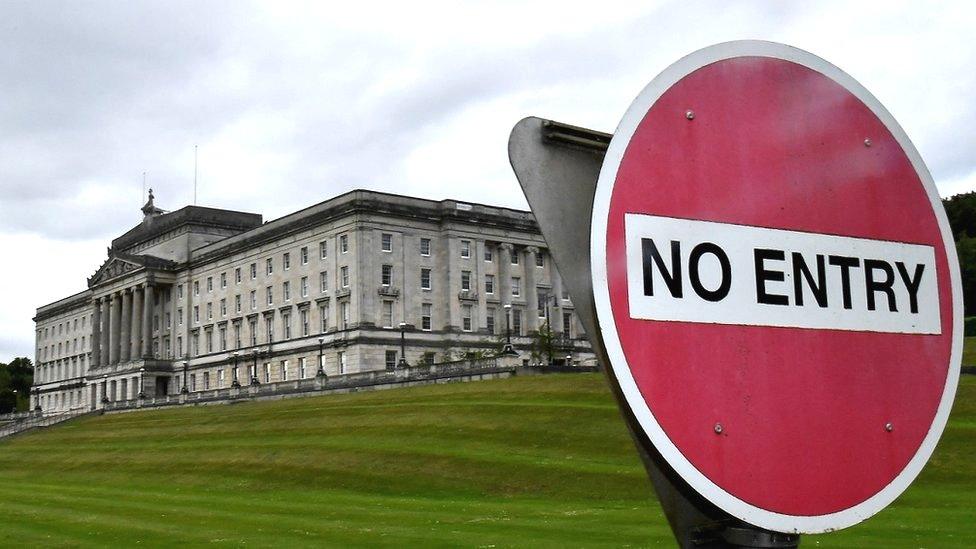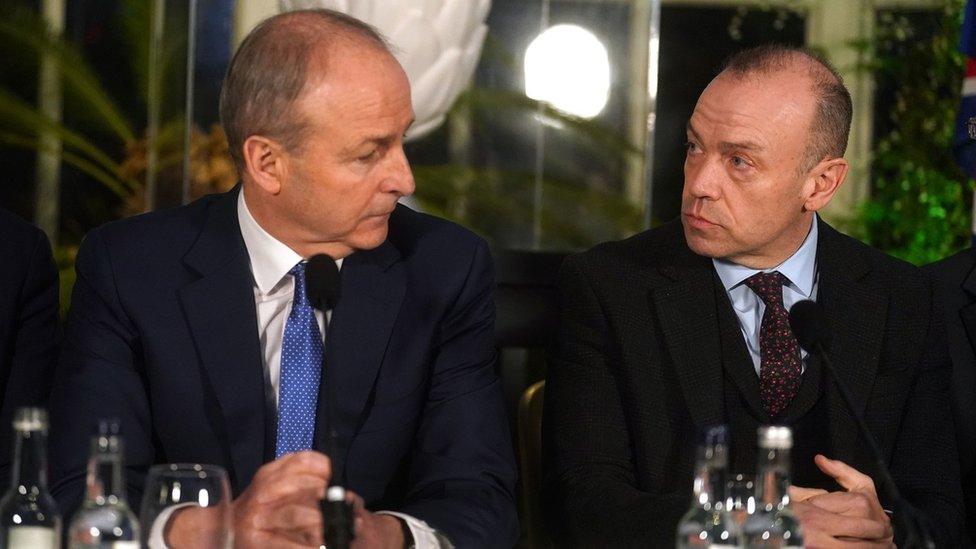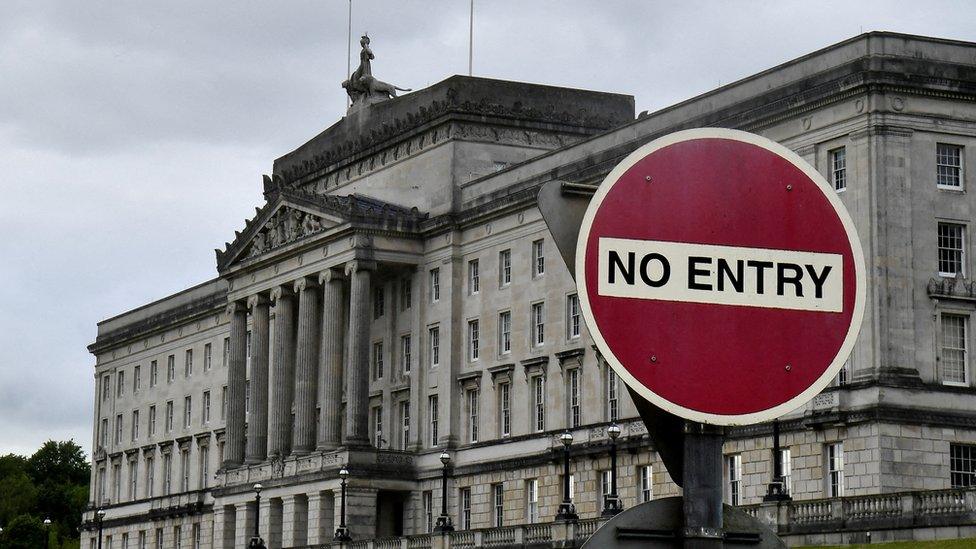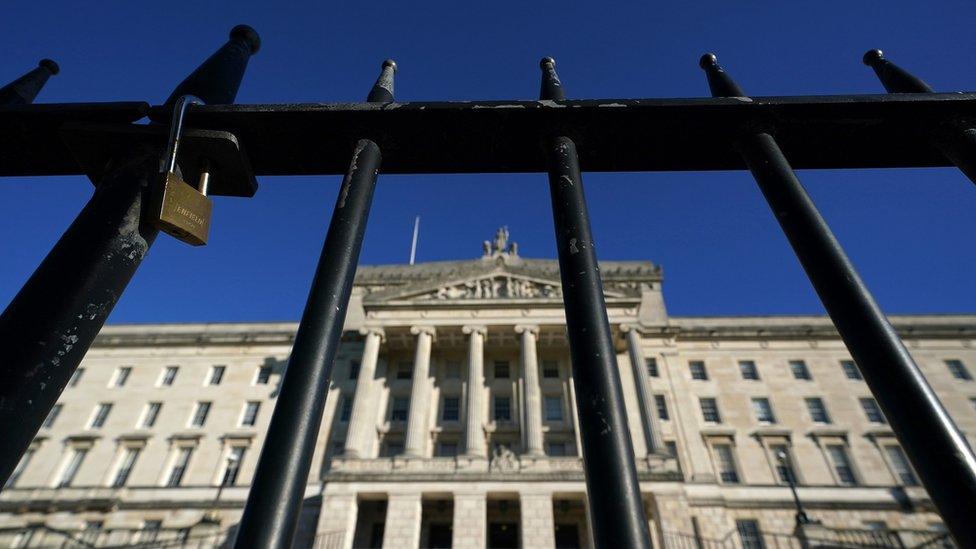Stormont stalemate: Latest deadline for restoring devolution passes
- Published

The latest deadline to restore Northern Ireland's devolved government at Stormont has passed without an agreement.
The law says the UK government must call another election within 12 weeks.
But Northern Ireland Secretary Chris Heaton-Harris could opt to delay a poll, as he has done previously via legislation at Westminster.
The Democratic Unionist Party (DUP) is refusing to re-enter government because of the Northern Ireland Protocol.
Under the existing rules, the latest an assembly poll can be held is 13 April 2023, meaning the government would need to call the election no later than early March.
Mr Heaton-Harris could instead choose to extend the deadline and delay an election, something he did back in November.
He has said he will "carefully assess all options" regarding what comes next and continue to talk to all parties before making any decisions.

Micheál Martin and Chris Heaton-Harris met in Dublin on Thursday
On Thursday he met Irish Foreign Minister and Tánaiste (Irish Deputy Prime Minister) Micheál Martin in Dublin at the latest session of the British Irish Intergovernmental Conference.
Northern Ireland Office Minister Steve Baker and the Republic's Justice Minister Simon Harris also attended.
Mr Heaton-Harris expressed hope that a breakthrough on EU/UK talks on Irish Sea trade could deliver a solution that facilitates the return of Stormont power sharing.
"I'm going to talk to all the parties concerned," he said.
"You will be aware that there are also important talks going on in Brussels between the UK government and European Union.
"And if we can solve one problem, we might be able to solve another.
"So, I think it's worth me taking the time to consider my options."
Mr Martin said there was an obligation on the DUP to drop its Stormont boycott irrespective of what emerges from EU/UK talks on the protocol.
Why is there no devolved government?
Devolution collapsed in February 2022 when the DUP withdrew Paul Givan from the post of first minister in Northern Ireland's power-sharing executive, in which unionist and nationalist parties are required to govern together.
It was part of the party's ongoing protest against the protocol, which was designed to ensure free trade could continue across the Irish land border after Brexit.
It has led to new checks on some goods moving between Great Britain and Northern Ireland, which unionists say undermines Northern Ireland's place in the UK.
Voters then went to the polls in a scheduled Northern Ireland Assembly election in May, which saw Sinn Féin win the most seats for the first time ever, with the DUP in second place.
This entitled Sinn Féin to take the position of first minister, but the DUP has refused to nominate a deputy first minister which means neither post can be filled.
The DUP has also refused to vote for an assembly Speaker, meaning the assembly has been unable to sit.
- Published19 January 2023

- Published2 February 2024

- Published9 November 2022
